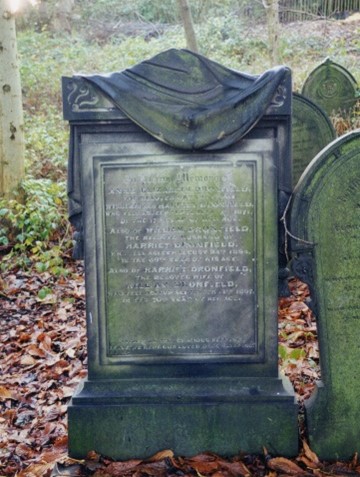 William Dronfield, born in Sheffield in 1826, was apprenticed to the printing trade. By his twenties he was a committed trade unionist and was present at a conference in Sheffield in 1849 at the founding of the Provincial Typographical Association. He was an executive committee member of the Association for 15 years and secretary of the Sheffield Journeymen Printers’ Society for 35 years.
William Dronfield, born in Sheffield in 1826, was apprenticed to the printing trade. By his twenties he was a committed trade unionist and was present at a conference in Sheffield in 1849 at the founding of the Provincial Typographical Association. He was an executive committee member of the Association for 15 years and secretary of the Sheffield Journeymen Printers’ Society for 35 years.
In 1858 a trade dispute with the proprietor of a local newspaper led Dronfield and others to create the Association of Organised Trades which in 1872 was reconstituted as the Sheffield Federated Trades Council. For several years as secretary of the Association, Dronfield was an important provincial figure in promoting the claims of the trade unions and was also in contact with several prominent trade union leaders. Dronfield advocated conciliation as a means of settling industrial disputes and in public at least he deplored what were termed ‘outrages’, the use of physical violence and ‘rattening’, the interference with workers’ tools and equipment.
At the Trades Union Commission inquiry in June 1867 into the Sheffield Outrages, the chairman referred to him as ‘a respectable man’ but he had to face uncomfortable questioning about his knowledge of the actions of William Broadhead, a fellow trade unionist and the chief instigator of violent practices.
In 1866 Dronfield called trade union delegates to a conference in Sheffield to discuss the creation of a national organisation that would resist employers’ lock-outs. The resulting alliance didn’t survive long but a conference held in Manchester two years later called for a congress of trades councils and societies which can be regarded as the founding conference of the Trades Union Congress.
Dronfield was also involved in a range of progressive causes. He was a Reform League supporter and spoke on the benefits of free and secular education.In the 1870s he was a local voluntary sanitary inspector which gave him opportunities to press for improvements in public health. William Dronfield was buried in grave V1 167 in the Anglican area of the Cemetery.



